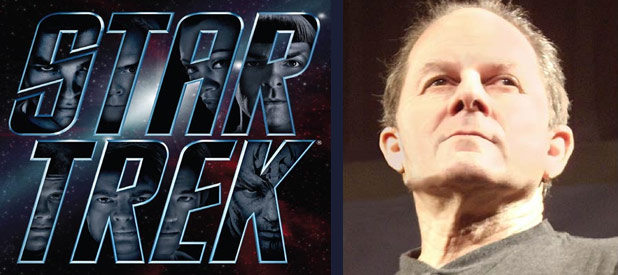Part 1: Alan Dean Foster Interview

Alan Dean Foster is know as a prolific science fiction writer for his novels Quofum, Glory Lane, Quozl and the Pip and Flinx series. He's also know for his movie novelization work for such movies as 'Star Trek', 'Outland', 'Star Wars: A New Hope', 'The Black Hole', etc. Just to name a few. Wired writer Jenny Williams recently sat down for lunch with Mr. Foster and had a chance to ask him a few questions. This is part I in a three part series.
Jenny Williams: Do you have a writing schedule that you stick to since you’re so prolific?
Allan Dean Foster: More or less. It’s the only way you get anything done in life is to have a schedule. I get up in the morning, usually around 6, 6:30, take care of the animals. We have 7 cats, 3 dogs currently. And then I go out to the study and I get online and I generally read newspapers from all over the place for about two hours and while I’m doing that I sort of gestating in my mind what I’m going to do. I kind of write by sections when I’m writing a book. It might be a long section, it might be a short section. It might be a page and a half, it might be 4 or 5 pages. It’s actually more like scenes in a theater. One character enters, another character leaves, you’ve got a different scene, a different sequence. And that’s the way I try to work. And I can never seem to do two scenes in a row, unless I’m really into it. If it’s a short one I quit, if it’s a long one I keep going.
JW: Do you have a different method for when you’re writing your own original book or when you’re doing a novelization of a movie?
ADF: Actually yeah. The scenario I just described to you is for original material… for the rough draft of original material. But when I’m working on a novelization or a final draft, it’s not a scene problem because the material is already there. So I’ll just keep going until I get tired or I run out of creative steam or whatever. It’s the same thing with a novelization. The screenplay essentially is the rough draft. So I don’t have to stop at one scene or another because it’s all written out for me. So I just keep going generally. The only time that that changes is when I’m on a really tight deadline, which happens frequently. More often than not with the novelizations. And then I just have to go and go and go and go until I just can’t go anymore.
JW: Do you always have one or two or three projects going at a time?
ADF: No. I can never do two original novels at the same time because most of it stays in my head. I don’t have an extensive outline, I have a short outline which I modify as I go along. And again with a novelization that’s not a problem. But to do two original novels simultaneously, I can’t do it. It’s just too much to retain on the same hard drive. What I can do, although I prefer not to, is work on an original novel and a novelization at the same time. Even that’s very difficult. It’s generally better to keep them separate, because in my mind, everything is going simultaneously. What I can do is stop and do an article, a non-fiction piece, or a short story because that doesn’t take me very long, and I don’t lose the flow for the whole book.
JW: Do you enjoy writing the novelizations? You’re sort of constrained by their storyline but you’re free to add your own. Is that enjoyable?
ADF: It’s always enjoyable. It’s more enjoyable if it’s a good screenplay and a good movie. But even the bad stuff I take enjoyment from fixing as much as the studio will let me get away with. (source Wired)
Read the full article here.

